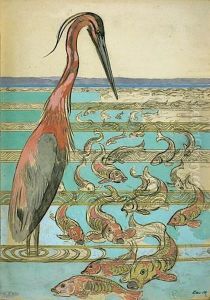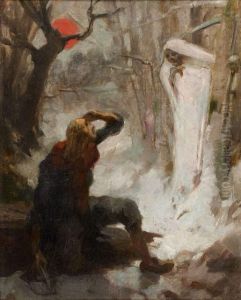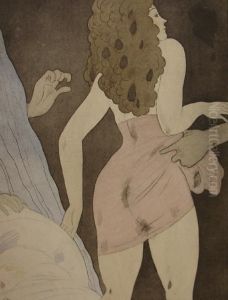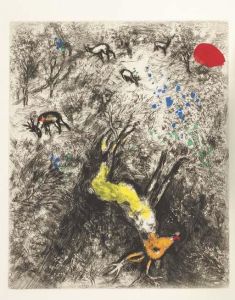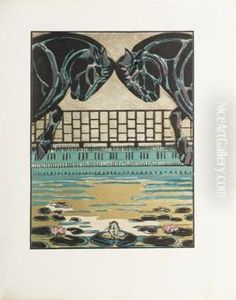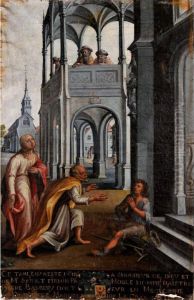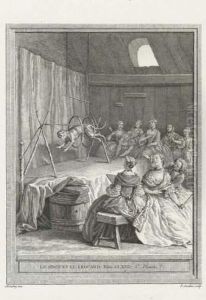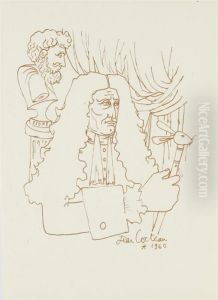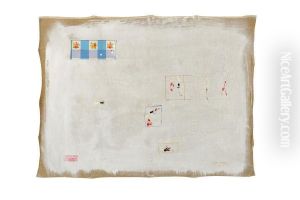Jean De La Fontaine Paintings
Jean de La Fontaine was a French fabulist and one of the most widely read French poets of the 17th century. Born in Château-Thierry, Champagne, on July 8, 1621, La Fontaine is best known for his Fables, a collection of poetic stories that are considered a masterpiece of French literature. These fables, inspired by Aesop's fables and various other sources, were written in an elegant yet simple style, making them accessible to both adults and children. They were published in several volumes between 1668 and 1694 and include such famous tales as 'The Crow and the Fox' and 'The Tortoise and the Hare', which teach moral lessons through the actions of animals with human characteristics. La Fontaine received a good education, studying at the Oratory of Reims and later moving to Paris, where he became a member of the French literary circle, associating with figures like Molière and Racine. Despite his literary success, La Fontaine's life was marked by financial difficulties. He depended on the patronage of influential figures, including Nicolas Fouquet, the Superintendent of Finances under Louis XIV, and later Madame de La Sablière, who provided him with a home for nearly 20 years. La Fontaine's other works include tales and various poems on subjects ranging from love to religious themes. However, it is his fables that have secured his legacy, influencing not just French literature but also the literary traditions of many other countries. His fables have been translated into numerous languages and adapted into various forms of art, including plays, ballets, operas, and films. Jean de La Fontaine died on April 13, 1695, in Paris, but his fables continue to be celebrated for their wit, moral insight, and the universal truths they convey.

